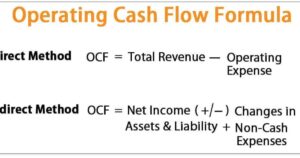Inventory management is a critical aspect of any business, directly influence cash flow. A company’s ability to manage its inventory effectively can mean the difference between financial stability and cash flow challenges.
Understanding how inventory management influences cash flow helps businesses maintain a healthy financial position, optimize resources, and avoid unnecessary expenses. In this article, we’ll explore various aspects of inventory management and how it influence cash flow, offering insights and practical tips to improve your business’s financial health.
How Does Inventory Management Affect Cash Flow?

The way a business manages its inventory can significantly affect its cash flow. The cost of acquiring inventory ties up cash, and poor management can lead to overstocking or understocking, both of which have financial implications. Overstocking results in excess capital being tied up in inventory that may not sell quickly, reducing available cash for other business operations.
On the other hand, understocking can lead to lost sales and customer dissatisfaction, ultimately affecting revenue. Effective inventory management ensures that the right amount of stock is maintained, balancing influence cash flow with customer demand.
How Do Inventory Days Affect Cash Flow?
The number of days inventory remains in stock, known as inventory days, is a crucial metric for cash flow. It reflects how quickly a business turns inventory into sales. The longer inventory sits on the shelves, the more cash is tied up, reducing liquidity. Businesses with high inventory days may struggle with cash flow issues.
Funds are not being freed up quickly enough to meet other financial obligations. Conversely, reducing inventory days can improve cash flow by speeding up the conversion of stock into cash. Companies should regularly analyze their inventory turnover rate to ensure they are optimizing their cash flow.
Why Is Managing Inventory Important to Managing Cash?

Managing inventory is essential for managing cash because inventory represents a significant portion of a company’s assets. Poor inventory management can lead to cash flow problems, affecting the company’s ability to pay suppliers, employees, and other obligations.
Efficient inventory management allows businesses to forecast demand accurately, reduce excess stock, and avoid stockouts, all of which contribute to a influence cash flow. By maintaining an optimal inventory level, companies can ensure that cash is available when needed, supporting ongoing operations and growth initiatives.
The Relationship Between Inventory and Working Capital
Inventory is a major component of working capital, and its management directly affects a company’s liquidity. Working capital is the difference between a company’s current assets and current liabilities, and it represents the short-term financial health of the business.
Excessive inventory can lead to a decrease in working capital, as more cash is tied up in unsold goods. This can strain cash flow, making it difficult for businesses to cover day-to-day expenses. By optimizing inventory levels, businesses can improve their working capital position and ensure they have sufficient cash on hand to meet their obligations.
How Inventory Write-Down Affects Cash Flow?
Inventory write-down occurs when the market value of inventory falls below its cost, requiring the company to reduce the value of its inventory on the balance sheet. This write-down has a direct impact on cash flow, as it reduces the company’s assets and profitability.
A write-down does not immediately affect cash flow, it can lead to future cash flow issues by decreasing the overall value of the company’s inventory and affecting its financial statements.Businesses should regularly assess the value of their inventory and take proactive measures to avoid significant write-downs.
The Impact of Inventory Management on Profit Margins
Effective inventory management also influences a company’s profit margins. By managing inventory levels efficiently, businesses can reduce costs associated with storage, obsolescence, and waste. Lower costs contribute to higher profit margins, which in turn improve cash flow.
On the other hand, poor inventory management can lead to increased costs and reduced margins, straining cash flow. Businesses should focus on optimizing inventory turnover and minimizing costs to protect their profit margins and maintain a healthy cash flow.
The Role of Technology in Inventory Management

The use of technology in inventory management has revolutionized the way businesses manage their stock. Automated inventory management systems allow companies to track inventory levels in real-time, forecast demand more accurately, and reduce human error.
These systems can also integrate with other business functions, such as sales and finance, providing a holistic view of the company’s operations. By leveraging technology, businesses can improve inventory accuracy, reduce costs, and enhance cash flow management.
How Just-In-Time Inventory Systems Influence Cash Flow?
Just-In-Time (JIT) inventory systems are designed to minimize inventory levels by receiving goods only as they are needed for production or sales. This approach reduces the amount of capital tied up in inventory, freeing up cash for other uses.
JIT systems can significantly improve cash flow by reducing storage costs, minimizing waste, and decreasing the risk of obsolescence. JIT requires precise coordination with suppliers and a deep understanding of customer demand to avoid stockouts and disruptions in the supply chain.
The Effects of Seasonal Inventory Fluctuations on Cash Flow

Seasonal fluctuations in inventory can have a significant impact on cash flow. Businesses that experience high demand during certain times of the year, such as retailers during the holiday season, must carefully manage their inventory to avoid overstocking or understocking.
Overstocking can lead to excess inventory that may not sell after the peak season, tying up cash and reducing liquidity. Understocking, on the other hand, can result in lost sales and missed opportunities. By forecasting demand accurately and planning inventory accordingly, businesses can smooth out cash flow fluctuations caused by seasonal changes.
The Importance of Supplier Relationships in Inventory Management
Strong relationships with suppliers are essential for effective inventory management and cash flow optimization. Reliable suppliers can provide flexibility in payment terms, offer discounts for bulk purchases, and ensure timely delivery of goods.
These factors can help businesses manage their inventory levels more effectively and maintain a healthy influence cash flow. Conversely, poor supplier relationships can lead to supply chain disruptions, stockouts, and increased costs, all of which negatively impact cash flow. Businesses should work closely with their suppliers to negotiate favorable terms and ensure a steady supply of goods.
How Inventory Financing Can Improve Cash Flow?
Inventory financing is a form of short-term borrowing that allows businesses to use their inventory as collateral to secure a loan. This type of financing can provide businesses with the cash they need to manage day-to-day operations, pay suppliers, and invest in growth initiatives.
By leveraging inventory financing, businesses can influence cash flow without having to sell off assets or take on high-interest debt.It’s important for businesses to carefully consider the terms of inventory financing and ensure they can repay the loan without negatively impacting their cash flow.
The Role of Inventory Audits in Cash Flow Management
Regular inventory audits are crucial for maintaining accurate inventory records and optimizing cash flow. An inventory audit involves counting and verifying the physical inventory on hand, comparing it with the inventory records, and identifying discrepancies.
These audits help businesses detect issues such as theft, damage, or mismanagement, which can lead to cash flow problems. By conducting regular audits, businesses can ensure that their inventory levels are accurate, reduce losses, and improve cash flow management.
How Inventory Management Affects Cash Conversion Cycle?
The cash conversion cycle (CCC) is a key metric that measures how long it takes for a business to convert its investments in inventory into cash. A shorter CCC indicates that the business is able to quickly turn its inventory into sales and collect cash, improving cash flow.
Inventory management plays a critical role in the CCC, as it directly affects the time it takes to sell inventory and collect payments. Businesses that manage their inventory effectively can reduce their CCC, improve cash flow, and enhance their overall financial performance.
The Impact of Inventory Turnover on Cash Flow
Inventory turnover is a measure of how quickly a business sells its inventory and replaces it with new stock. High inventory turnover indicates that the business is selling goods quickly, which ifluence cash flow by freeing up capital for other uses.
Low inventory turnover, on the other hand, suggests that inventory is not selling quickly, tying up cash and potentially leading to obsolescence. Businesses should aim to maintain a high inventory turnover rate to ensure a steady flow of cash and minimize the risks associated with holding excess inventory.
The Future of Inventory Management and Cash Flow Optimization
The future of inventory management lies in the integration of advanced technologies, such as artificial intelligence (AI) and machine learning, to optimize inventory levels and influence cash flow. These technologies can analyze vast amounts of data, predict demand trends, and provide real-time insights into inventory management.
By adopting these technologies, businesses can enhance their inventory management practices, reduce costs, and improve cash flow. As the business landscape continues to evolve, companies that invest in advanced inventory management solutions will be better positioned to maintain a healthy cash flow and achieve long-term success.
Frequently Asked Questions
Q1. What is inventory turnover, and why is it important?
Inventory turnover is a measure of how quickly a business sells its inventory within a specific period. It is important because high inventory turnover indicates efficient inventory management, leading to improved cash flow and reduced risks of obsolescence.
Q2. How can technology improve inventory management?
Technology, such as automated inventory management systems and AI, can improve inventory accuracy, forecast demand, reduce costs, and enhance cash flow by providing real-time data and insights for better decision-making.
Q3. What is Just-In-Time (JIT) inventory, and how does it affect cash flow?
Just-In-Time (JIT) inventory is a system where goods are received only as needed for production or sales. JIT reduces the amount of capital tied up in inventory, improving cash flow by minimizing storage costs and waste.
Q4. How does inventory write-down impact a business?
An inventory write-down reduces the value of a company’s inventory on the balance sheet, which can affect profitability and future cash flow by decreasing the overall asset value and financial health of the business.
Conclusion
Inventory management is a vital component of cash flow management, influencing various aspects of a business’s financial health. By optimizing inventory levels, leveraging technology, and maintaining strong supplier relationships, businesses can improve their cash flow, reduce costs, and enhance profitability.
As the business landscape continues to evolve, companies that prioritize effective inventory management will be better positioned to thrive in the long term. Effective inventory management is not just about stock control—it’s about ensuring financial stability and supporting business growth.

Milton is a seasoned financial strategist who shares expert insights and practical tips on mastering cash flow to help you achieve financial stability and growth.











